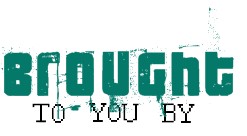QCF: Resident Evil 6
 This review was a freelance assignement, written by Joshua Newey from Sega Addicts. Be sure to check Sega Addicts out by clicking here!
This review was a freelance assignement, written by Joshua Newey from Sega Addicts. Be sure to check Sega Addicts out by clicking here!Few franchises have had the same growing pains as Resident Evil. While the first few titles initially garnered solid reviews for their groundbreaking qualities and resonating atmosphere, their now-maligned “tank controls,” flimsy puzzles and pre-rendered visuals makes it feel somewhat disingenuous and anachronistic to list them amongst my favorite games of all time.
Maybe that's why the series continues to struggle with the same identity crisis that's been slowly growing since games like Code: Veronica. With one foot set firmly in B-movie sci-fi horror, and the other shifting deeper and deeper into the cinematic world of dramatic camera angles, explosive set pieces, and muscle-bound heroes, Capcom seems increasingly unsure about how to help the series grow without shirking its roots or driving a wedge between itself and its longtime fans.
With Resident Evil 6, that niggling identity crisis has inflated into a full-blown, self-effacing complex.

From the very first moments of Resident Evil 6's explosion heavy, QTE-obsessed prologue, it's immediately obvious that relentless heartpounding action was a central goal. Within about ten minutes you'll drag an incapacitated body from a raging inferno, run from a wall of fire, dangle from the legs of a helicopter, and fly that same helicopter into the side of a skyscraper. Ironically, all of these “exciting” events are laid out in distancing, tedious QTE sequences, keeping the actual interaction to a bare minimum and thus making it one hell of a bore. This could have been a gripping cinematic opening but the perpetual need to thrill the player with bombastic events and surprises ends up blending together into a flaccid, repetitive wash of QTEs, frustrating running sequences, and cliched action cut  scenes. Even Leon's campaign, which at least attempts to brush up against the series' old roots of zombie horror and ambiance, eventually retreats to the same kill-all-the-enemies-to-continue zombie shoot-outs time and time again. This complete lack of tension or build is especially egregious in Chris's campaign, where you'll basically face the same hodge-podge of unfairly placed snipers and rocket launchers through the bulk of the entire campaign.
scenes. Even Leon's campaign, which at least attempts to brush up against the series' old roots of zombie horror and ambiance, eventually retreats to the same kill-all-the-enemies-to-continue zombie shoot-outs time and time again. This complete lack of tension or build is especially egregious in Chris's campaign, where you'll basically face the same hodge-podge of unfairly placed snipers and rocket launchers through the bulk of the entire campaign.
This is not to say that the game doesn't try to change things up, at least in terms of the events you'll be playing through. While the central tenets of gameplay basically remain the same across the board, the overall theme and layout of the campaigns varies pretty greatly. As I've already mentioned Leon's campaign tries to lean towards an older RE experience, with the dark corridors, zombie enemies and burning city streets at least paying a shallow tribute to his roots in Resident Evil 2. Chris's campaign plays like a shockingly guided Gears of War-type shooter based almost entirely on entering a room, seeing Ada quip a snarky line before departing, then shooting a bunch of mutating snipers. Jake's campaign also takes an action oriented shooter approach, and even has the audacity to mix in some sloppy, laughable stealth to the already overburdened mix.
These variations wouldn't bother me nearly as much if the basic foundations of what makes modern Resident Evil work remained intact. But somewhere in the layer upon layer of unnecessary stealth sequences, driving sequences, and semi-interactive cutscenes, Capcom somehow lost a grip on the basic tenets of the franchise as almost all elements of the basic shooting gameplay are lacking several layers of polish. Enemy animations are slow, difficult to decipher, and often don't even initiate at the right moments (like when they've been shot). The old strategy of bringing your foes to their knees with a wellplaced shot and using your knife to kill them is now woefully ineffective. Melee is at once overpowered and janky, as connecting kicks and punches is very imprecise and hard to direct, especially with several enemies surrounding you. Even the inventory system, which has once again been completely overhauled, is now confusing and unwieldy. Especially when it comes to combining, trading, and using health tablets.

With the foundations already cracking beneath it, it's especially unfortunate and frustrating that Resident Evil 6 desperately wants to be so much and fails at all of it. Nearly every moment from all three campaigns feels like a slapdash mimicry of some pioneering game that came before it. Not one element feels refined, renewed or even melded with the Resident Evil sentiment to create something compelling. There are so many extraneous and unnecessary moving parts to this game that I often found myself completely forgetting little bits like the awful cover mechanic, the utterly useless upgradable perks, or the ridiculous roll mechanic that forces you to lie on your back in some Point Break-esque action pose.
Even the co-op, which Capcom has been insisting on since Resident Evil 5, is more forced and pointless than ever. Occasional two player puzzles or tasks like “distract the monster while I do this,” do pop up occasionally, but they all feel like contrived excuses to justify a second member in a one-player game. Exacerbating this are the QTE sequences that actually leave one player twiddling their thumbs while watching the other player do all the work. The final boss of Leon's campaign even shoos Leon's partner into her own little room while Leon completes one of the biggest boss fights with his real partner, Ada. It's like Capcom is openly admitting that adding in these new characters was a big mistake.
While most of Resident Evil 6 is content with being anything but a Resident Evil game, it's nice to see that a lot of the presentation and story elements at least fall in line with series tradition. The plot lines, while varying in quality and depth, maintain that level of corny sci-fi horror that series fans love. Little surprising reveals are sprinkled throughout, and while the new action-obsessed formula really deflates any form of tension the character interactions are relatively believable and engaging. I was especially fond of Sherry and Jake's contentious “mercenary/goodie-two-shoes” dynamic, which I'm hoping will return at some point in the future. Leon's campaign seemed to get the most focus, as his plotline easily offers the most meat and weighty surprises. That said, Resident Evil has never been the place to go for solid storytelling, and anyone looking for real depth is likely to gag at the cloying nature of almost every relationship in the game.

Even more appreciated are the many nods to creatures and environments of previous Resident Evils. After the shoe-horned retconning that nearly ruined Revelations it's nice to see such respect being paid to the beloved (if ridiculously convoluted) mythos. Touches like the return of Yawn the giant snake, or a familiar gun shop that harkens back to Resident Evil 2, help to numb some of the sting of RE6's more egregious errors.
Like a insecure junior high student who desperately switches between several contradictory personalities to fit in with every clique on the playground, Resident Evil 6 feels disingenuous, frustrated, and depressingly vapid under the surface. More than any entry that has come before it, this game is a portrait of a franchise desperate for a new path that it's not willing to create. Die-hard fanatics will appreciate the many nods to franchise past, and a handful of twisted new creature designs, but under that very thin, cosmetic veneer, there is an unpolished, frustrating, soulless game that's terrified of doing anything new.

 Japanese,
Japanese,  RE6,
RE6,  Resident Evil,
Resident Evil,  Survival Horror,
Survival Horror,  third-person shooter | in
third-person shooter | in  QCF Reviews
QCF Reviews 










